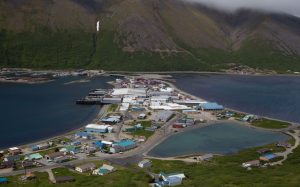Salmon Advocates Alarmed after Yukon River Cyanide Spill
 Salmon advocates are expressing grave concerns after a recent cyanide spill at Victoria Gold’s Eagle Mine, fearing that the pollution, which has not been fully contained, could harm the Yukon River’s already struggling salmon populations.
Salmon advocates are expressing grave concerns after a recent cyanide spill at Victoria Gold’s Eagle Mine, fearing that the pollution, which has not been fully contained, could harm the Yukon River’s already struggling salmon populations.
Following a major equipment failure at Victoria Gold’s Eagle Mine, the Government of Yukon has taken charge of a comprehensive cleanup effort. The accident, which occurred on June 24, 2024, resulted in the release of nearly 10.54 million cubic feet of cyanide solution into the Stewart Watershed, a crucial segment of the Yukon River’s extensive network. This incident has sparked widespread concern about its potential long-term environmental impact in both the United States and Canada.
The spill, equivalent to the volume of over 120 Olympic-sized swimming pools, poses a severe threat to the ecosystem. Yukon officials have confirmed that extensive monitoring will be required to assess and mitigate the damage caused by the cyanide, a substance known for its toxicity to salmon and other aquatic life. Within ten days of the spill, elevated cyanide levels were detected in a nearby creek, raising warnings among environmentalists and local authorities.
 Maritime Injury Law Blog
Maritime Injury Law Blog










